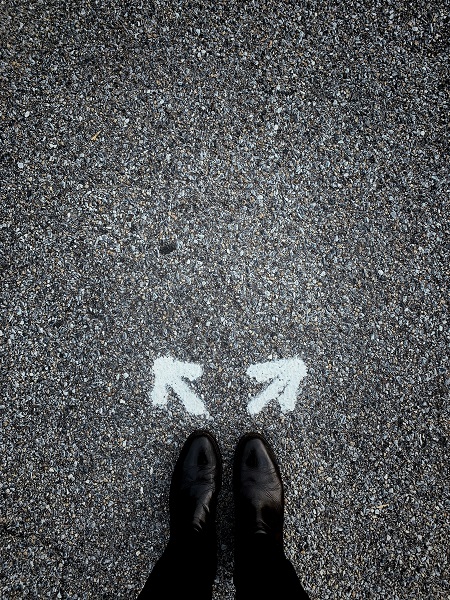The Wisdom to Know the Difference
This year, I have been learning more about the Enneagram. It is a personality categorization system which has roots in ancient wisdom. What I like about the Enneagram is that it not only defines a person. The system also provides insight into what faults to watch out for, what things to strive for, and how to be our best self in relation to others.
It is no surprise that I am a One in the Enneagram. The perfectionist. We Ones believe our worth is derived by doing things “right” and being “good.” The good news is that means we are often “conscientious, responsible, improvement-oriented, and self-controlled.” All things I am happy to own. However, as a One I am also judgmental and critical of myself and others, and often resentful.
Living life as a One is teaching me to live by the Serenity Prayer. A mainstay in 12 Step programs, the Serenity Prayer asks for the serenity to accept the things that can not be changed, the courage to change the things that can change, and the wisdom to know the difference. I have seen this prayer play out strongly for myself throughout this year.
Serenity is truly what I strive for; that feeling of being calm, peaceful and untroubled. Yet, my natural tendency is to look for the judgment and resentment which makes me feel anything but serene. What a beautiful dichotomy from which to learn. Here are a couple of points I have noticed:
It is rarely either/or
When I first started to use this prayer, I thought the goal was to choose either acceptance or action. As my go-to response is to fight for justice, I thought the correct new response should be to accept everything. What I am finding is that it is not to either accept or change, but both. In every challenge there is something to accept and there is something to change. Usually it comes down to accepting the circumstances or actions of others. Acceptance means that something is currently happening, and I accept that it is the current truth. Then I look at what I can change – usually my viewpoint, expectations, actions, or reactions.
It is not you, it’s me
My gut reaction is to want to change you. If the government, my neighbor, the world was only different, then everything would be ok. Wrong. Change begins with oneself. I first need to change how I see and approach situations before I can make any positive changes for myself or others. It is easy to see what is wrong with someone else and what they should do (or at least we believe it is easy to change them). The truth is we need the courage to take a self-inventory and clean our own house before we presume to be able to change anyone or anything else.
Importance of action
The importance of action is another key lesson for me this year. The courage to change the things we can does not always mean attending a rally or fighting for the disenfranchised. Sometimes it may just mean doing something a little differently. If we normally turn right, the change may be to turn left. Action also means getting out of one’s head and doing something, not just ruminating on the issue. Real change happens in the physical world, not between our ears.
Using the Serenity Prayer
A recent example of the serenity prayer in action is in dealing with one of my husband’s vendors. I handle much of the ordering and billing for my husband’s business. One of the companies used frequently has issues with shipments and billing. At first, I was angry and resentful as if this company was purposefully making my life difficult. That line of thinking did not make me feel calm, peaceful, or untroubled. I began to accept that I could not change the way the company created their ordering and accounting systems. I accepted the employees that company chose to hire. These were things beyond my control and I needed to accept that reality. Then I looked at what I could change. If I could not count on the company to provide the information, tracking and clarity I needed, then I needed to change my expectations. I created my own spreadsheet to track orders, backorders, and charges. I took control of what I could control and released what I could not. Not only did I find more peace, but I improved efficiency.
As you go about your week, look at your challenges. What parts of the challenges are beyond your control to change? What do you need to do in order to accept this fact? Next, explore what is in your control to change and then actually take action. See if you can’t improve your relationships, your stress level, and your ability to make things go smoother.





